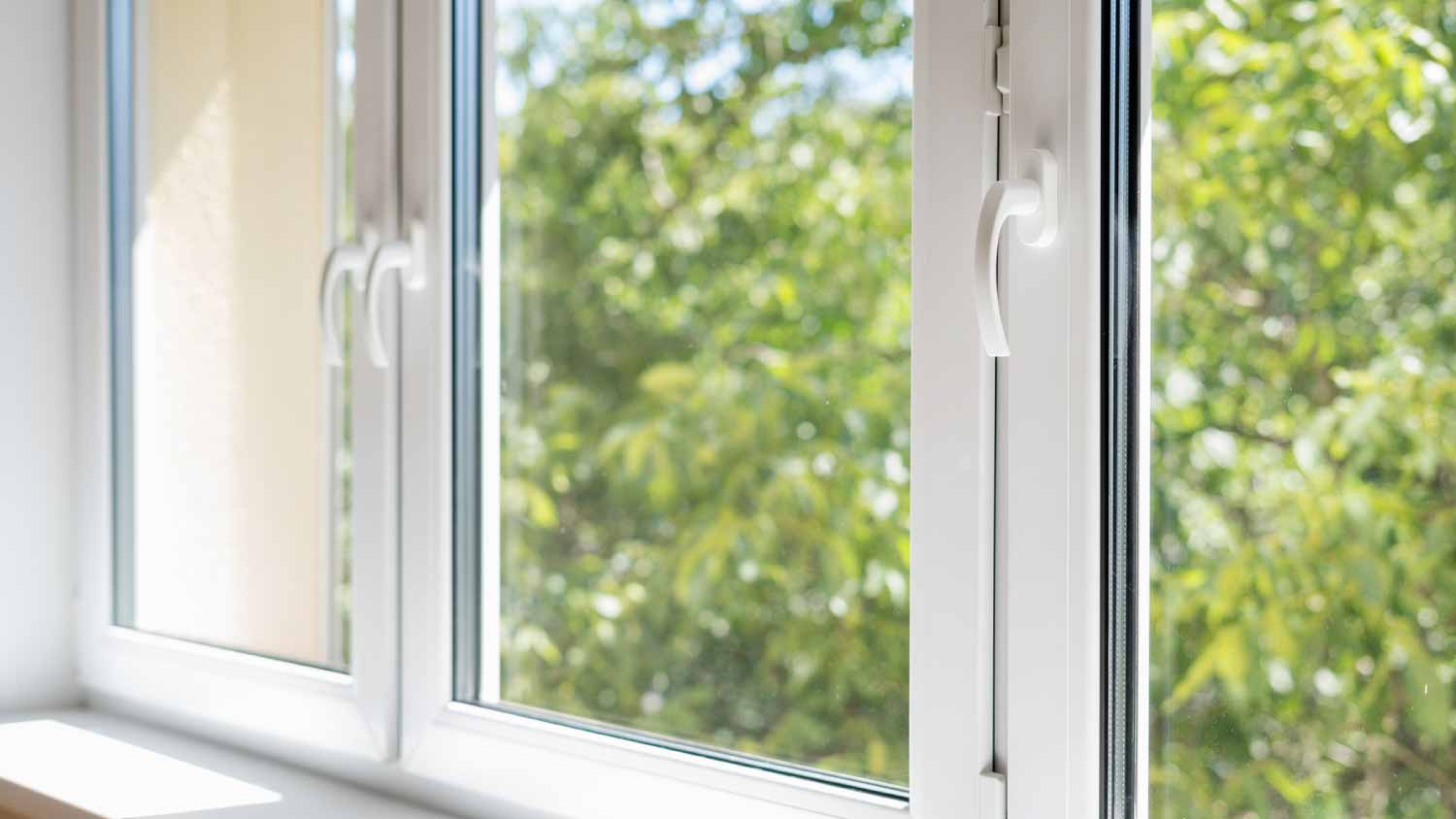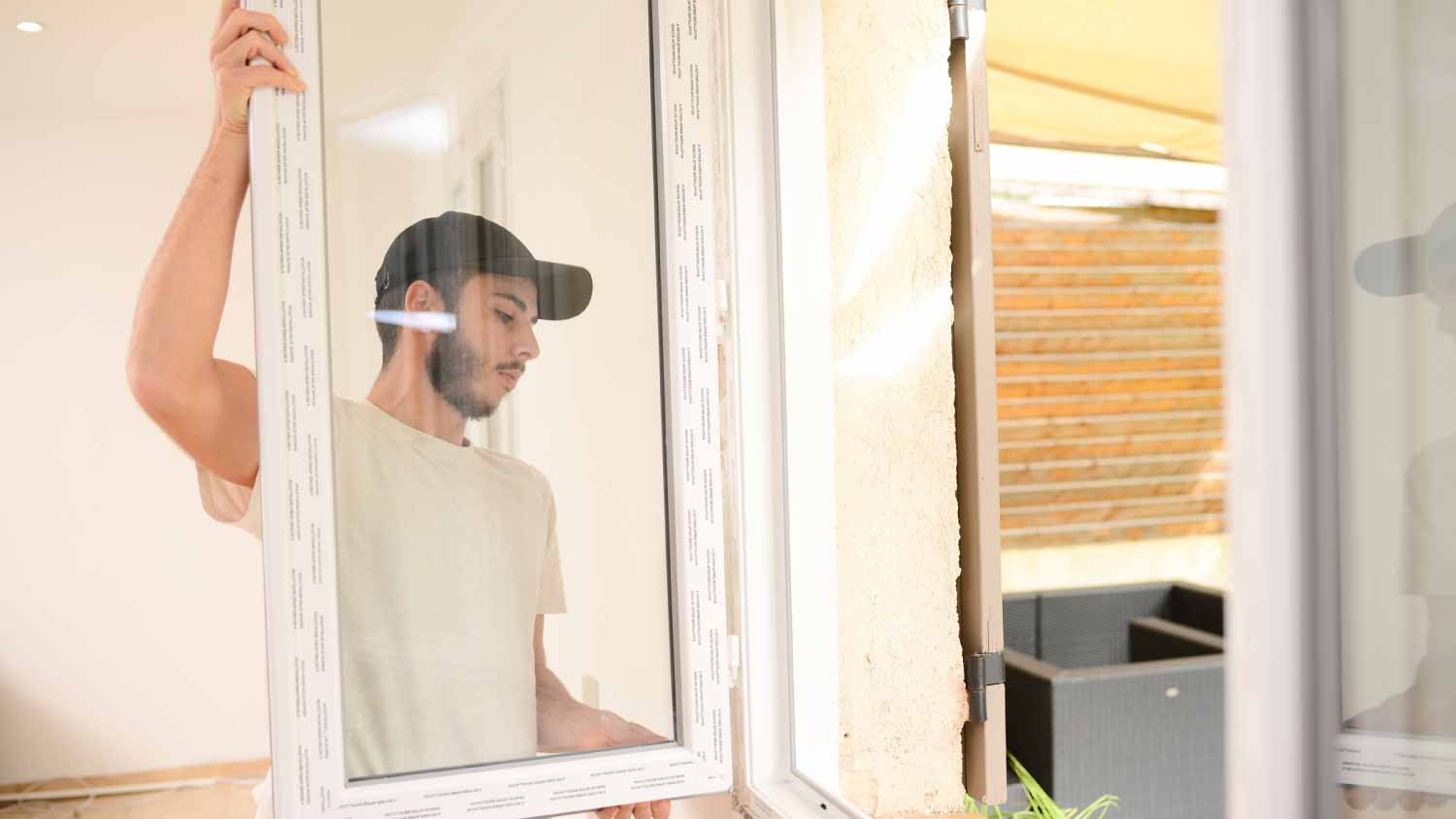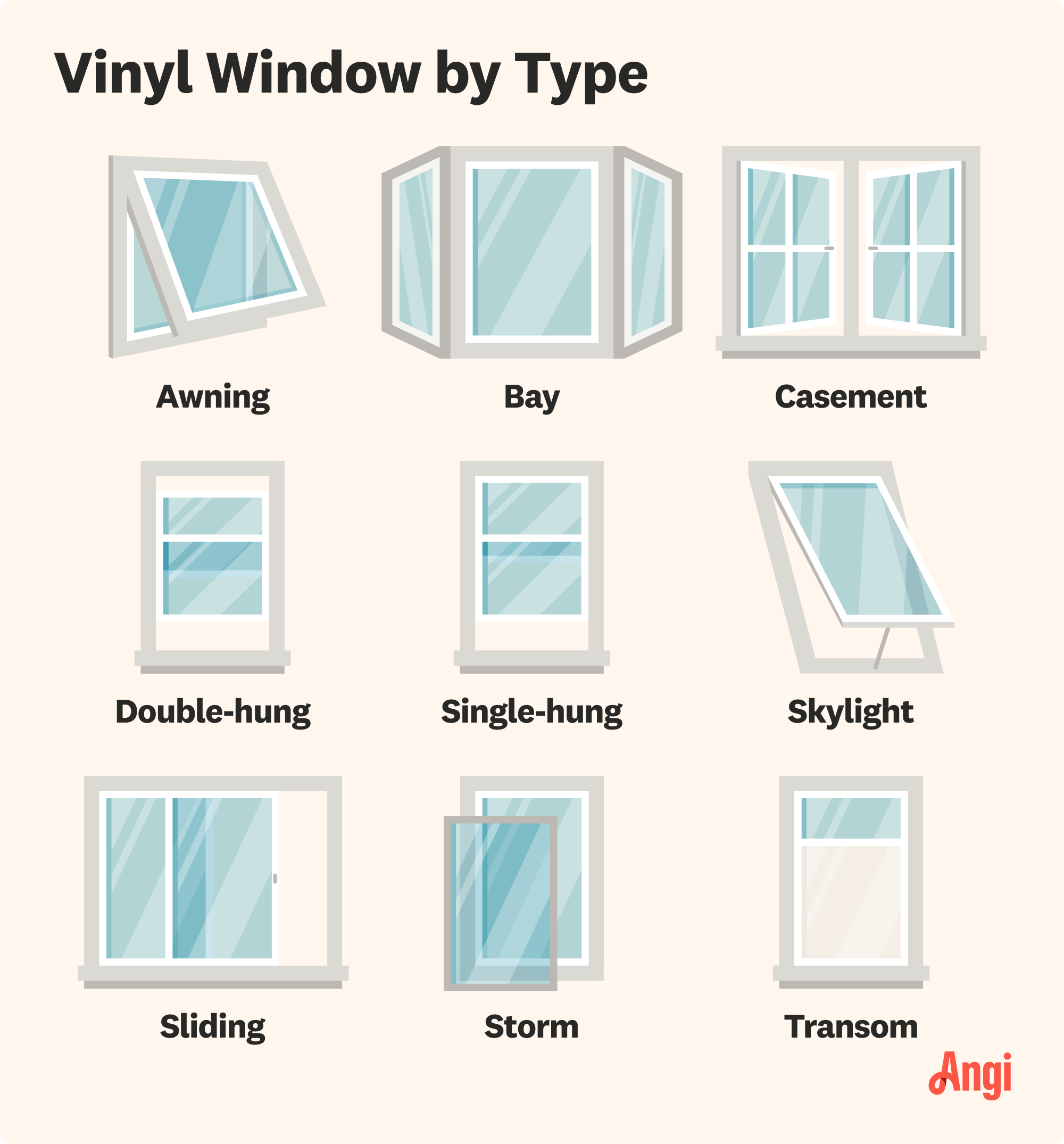How Much Does It Cost to Install Vinyl Windows?
Installing vinyl windows costs $8,500 on average, but costs can go as low as $200 when replacing a single small vinyl window or as high as $27,500 when replacing vinyl windows throughout your home.


The cost to install vinyl windows runs from $2,275 to $18,750, with the average project costing $8,500. Small projects, like replacing a single casement window, may cost as little as $200, but replacing every single window in your home (the average house has 22, according to the EPA) could cost as much as $27,500.
Several factors impact how much it costs to replace vinyl windows, including the number of windows, the size of each window, the style of each window, and who’s doing the labor. Below, we’ll break down these and other vinyl window installation cost factors.
Prefab vs. Custom Vinyl Window Prices
Standard window sizes and styles allow you to purchase premade, or prefabricated, vinyl window replacements. On average, the price of a single prefab window is $650, but this ranges from $255 to $1,050—with some exceptions for small, affordable windows (more affordable) and massive bay windows (much more expensive).
If the opening in which you’re installing a vinyl window is not a standard size or shape, you’ll likely need to have the window custom-made. Not only does this delay the process, but it also increases the cost, usually by 25% to 50%. That makes the average cost of a custom vinyl window roughly $325 to $1,575.
Throughout the rest of this vinyl window installation cost guide, we’ll be looking at prefab prices exclusively, to keep things simple. If any of the windows you’re installing will need to be custom-made, remember to adjust your budget accordingly.
Vinyl Window Installation Cost Factors

Several factors impact how much it costs to install vinyl windows in your home, including the number of windows, as well as each window’s style and size.
Number of Windows
The number of vinyl windows you’re installing has a huge impact on cost. For instance, installing a single vinyl window could cost as little as $200, but replacing 22-plus windows throughout your home could easily cost you $27,500 or more.
Sometimes, you may only need to replace windows in a certain part of your home, or you may be constructing an addition that means you merely need to install two or three windows. If you’re on a tight annual home renovation budget, you may also want to tackle only a few windows at a time.
But if all your windows are in poor shape, it’s more cost-effective to replace them all at once, as the contractor will likely discount their labor rate based on the project size.
The table below shows how the number of windows can quickly impact the cost to install vinyl windows:
| Number of Vinyl Windows | Typical Cost Range |
|---|---|
| 1 | $255–$1,050 |
| 5 | $1,275–$5,250 |
| 10 | $2,550–$10,500 |
| 15 | $3,825–$15,750 |
| 20 | $5,100–$21,00 |
| 22* | $5,610–$23,100 |
| 25 | $6,375–$26,250 |
*The EPA reports that the average home has 22 windows.
Type of Windows
The type of window also impacts the cost to install a single vinyl window. Awning and casement vinyl windows start as low as $100 per window while vinyl bay windows can cost as much as $6,450 a piece.
Your house is likely an assortment of window types, from transoms and storm windows to skylights and casement windows. Which styles of windows you install (and how many of each) will ultimately impact how much you spend.

Size of Windows
The size of each vinyl window also affects how much installation costs. A small vinyl window costs as little as $100 for the window itself, while a large vinyl window costs up to $1,500 (more for bay windows, which are an exception).
The table below shows typical window prices by size:
| Vinyl Window Size | Typical Cost Range Per Window (Unit Only) |
|---|---|
| Small | $100–$400 |
| Medium | $400–$1,000 |
| Large | $1,000–$1,500 |
Labor
While it’s technically possible to install a window yourself, it’s much better to go with a well-reviewed and certified window installer near you, especially if you’re replacing multiple windows. On average, window contractors charge $100 to $300 per window (up to $600 for large or complex vinyl windows).
Typically, if you’re replacing windows throughout your entire home—or even multiple windows within one or two rooms—contractors will charge less per window.
Additional Cost Factors
Other factors can also impact the cost to install vinyl windows, including:
Type of glass: Standard single-pane glass is the most affordable, but if you upgrade to double- or triple-pane glass, you can expect to spend more on vinyl window installation. Upgrading to a Low-E glass coating costs about $4 more per square foot.
New construction vs. replacement: If you’re building an addition or constructing a new home, it’s usually a little cheaper per window to install them, as the price is bundled into a much larger project cost.
Brand: You can save money by choosing a more budget-friendly brand, such as Milgard or Jeld-Wen.
Your location: Where you are geographically located can impact both material and labor costs; urban and coastal areas generally have a higher cost of living, but super remote houses may also see higher labor costs than a typical suburban home, simply because contractors must drive farther to get to you.
Your windows’ location: If you live in a tall house with several floors, labor rates for window replacement may be higher to reflect the added work and risk—and it may take the contractors longer to replace the higher windows.
DIY Vinyl Window Replacement vs. Hiring a Pro
If you know how to install a window, you can try to tackle the project yourself. However, if you’re replacing more than one or two windows, you’ll spend way too much time on the project, and you increase your odds of incorrect installation. Poorly installed windows can lead to air leaks (and higher utility bills), they can cause water damage, and they also pose a security risk.
For that reason, we recommend hiring certified and experienced window professionals to handle the installation. They have the proper tools and knowledge to do the job properly, and if you’re replacing windows throughout your house, they can complete the project way more efficiently than you could on your own.
4 Ways to Save Money on Vinyl Windows
While you can save money by handling the labor on your own, here are some other ways to save money on vinyl window installation—without taking everything on by yourself:
Get multiple quotes: Never go with the first contractor you find. To make sure you’re getting the best work at the lowest price, consult with at least three contractors about the project. Here are some questions to ask window contractors to narrow down your search.
Choose standard sizes: If you’re building a new home or creating an addition, stick with standard sizes and shapes so that you don’t need to have windows custom-made.
Look into rebates: If you install energy-efficient windows, you may be eligible for local and state rebates.
Remove the windows yourself: Even if you’re going to have a contractor install your vinyl windows (recommended), you can save some of the labor costs if you have intermediate DIY skills. Removing the old windows on your own can cut costs—and disposing of them yourself eliminates junk removal fees the contractor may charge.
How Angi Gets Its Cost Data
Home is the most important place on earth, which is why Angi has helped more than 150 million homeowners transform their houses into homes they adore. To help homeowners with their next project, Angi provides readers with the most accurate cost data and upholds strict editorial standards. We extensively research project costs to develop the pricing data you see, so you can make the best decisions for you and your home. We rely on reputable sources, including the U.S. Bureau of Labor Statistics, academic journals, market studies, and interviews with industry experts—all to ensure our prices reflect real-world projects.
Want to help us improve our cost data? Send us a recent project quote to costquotes@angi.com. Quotes and personal information will not be shared publicly.
Frequently Asked Questions
The labor cost to install a window ranges from $100 to $300 on average. Some contractors may charge less per window if replacing windows in several rooms, or throughout the whole house. Installing large or custom windows may drive the per-window price up.
Before purchasing, it’s good to weigh the pros and cons of vinyl windows. Vinyl windows offer several advantages over other types of windows. Vinyl windows are more affordable than most other window types, and they’re also very energy efficient. Vinyl windows are also low-maintenance, weather-resistant, and easy to install.
Vinyl windows have a few cons to consider before installing. For instance, while vinyl windows are energy efficient in terms of maintaining your home’s temperature, the actual process of making vinyl windows involves chemicals that are harmful for the environment. Vinyl windows are also less customizable than some other types of windows.















